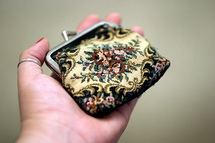
The increase in female representation in the US workforce found strong support among both men and women, with 80 percent of women saying they thought it was positive and 76 percent of men saying the same.
In 1972, at the height of the "women's lib" movement, the student population on US university campuses was 60 percent male -- now it is the other way around. Meanwhile, the 10 percent rate of female enrollment in law and medical degrees has risen to close to 50 percent.
Despite that progress, most Americans -- 57 percent of men and 51 percent of women -- still believe it is better for a family if the father works and the mother stays at home to look after the children.
More than two in every three women -- 69 percent -- said they face male resentment if they have more power than men, though only 49 percent of men said that was the case.
-----------------------------------------------------------------------------------------------------------------------------------
In 1972, at the height of the "women's lib" movement, the student population on US university campuses was 60 percent male -- now it is the other way around. Meanwhile, the 10 percent rate of female enrollment in law and medical degrees has risen to close to 50 percent.
Despite that progress, most Americans -- 57 percent of men and 51 percent of women -- still believe it is better for a family if the father works and the mother stays at home to look after the children.
More than two in every three women -- 69 percent -- said they face male resentment if they have more power than men, though only 49 percent of men said that was the case.
-----------------------------------------------------------------------------------------------------------------------------------









 Home
Home Politics
Politics









